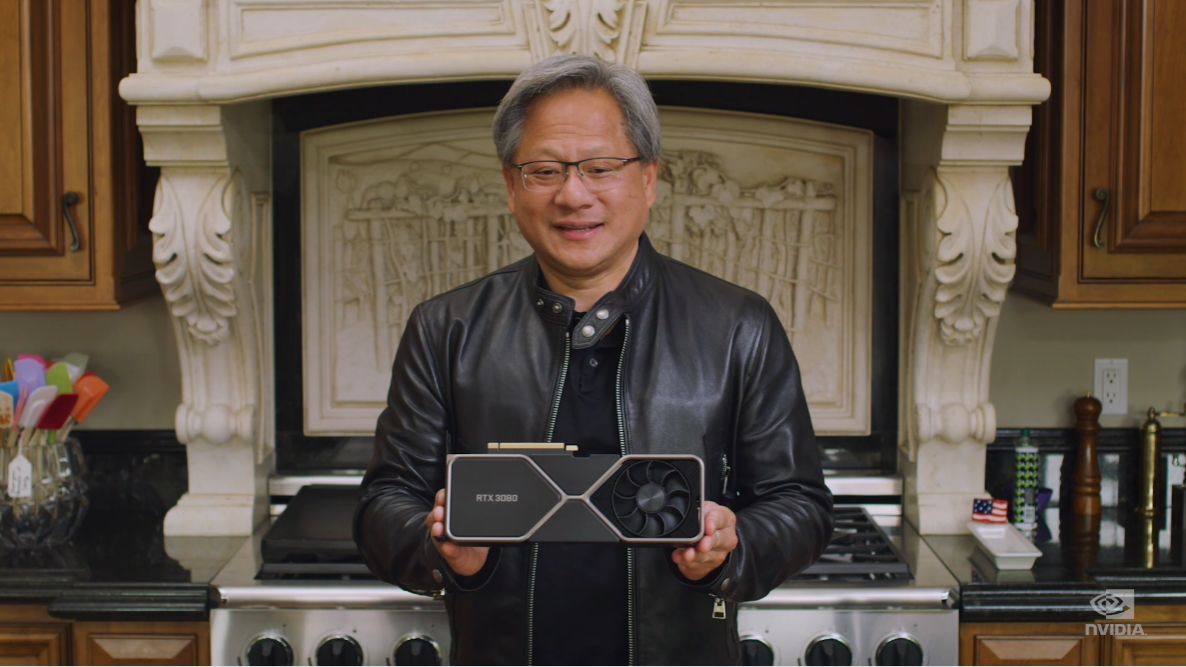Steam Hardware Survey hints Nvidia could struggle to get people to buy an RTX 3080
RTX 2000 series GPUs remain niche

Sign up for breaking news, reviews, opinion, top tech deals, and more.
You are now subscribed
Your newsletter sign-up was successful
Steam has published its latest Hardware & Software survey, giving us a good idea of the kind of kit PC gamers are using, and the results show what kind of landscape Nvidia is facing when it tries to convince people to buy its new RTX 3000 series GPUs.
The good news for Nvidia is that as of August 2020, it continues to dominate graphic card usage, with a huge 73.82% of respondents owning a GPU from team green. AMD, its closest rival, is still struggling to make headway with just 16.25%, while people gaming on Intel’s integrated graphics are unsurprisingly quite rare, with just 9.8% of respondents running that hardware.
- Find the best Nvidia GPU for you
- Check out all the best PC games
- We'll show you how to build a PC
However, while Nvidia should take comfort in its market leading position, as the VG24/7 website points out, the company may be disappointed with how little impact its last generation RTX 2000 graphics cards have made with Steam gamers.
Now, before we continue we should point out that the Steam Hardware & Software survey only take into account PC gamers who use Steam, and who agree to being included in the survey, so this doesn’t reflect the entire PC gaming population. However, due to Steam’s huge popularity, it gives us a good idea.
And according to the results, the Nvidia GeForce GTX 1060 continues to be the most popular graphics card, used by 11.18% of Steam users, followed by the GTX 1050 Ti, then the GTX 1050. It’s not until 7th place where you see an RTX 2000 series card – the RTX 2060, with 2.88% of the market share.
While the RTX 2070 Super, RTX 2070 and RTX 2060 Super also appear in the top 20, the list is by far dominated with GTX 1000 series cards, and even a smattering of GTX 900 cards.
Challenges and opportunities
On the one hand, the domination of GTX 1000 series GPUs offers Nvidia an opportunity. These cards, while still excellent, are beginning to show their age, so their owners may be more tempted to upgrade to a new RTX 3000 GPU than RTX 2000 owners.
Sign up for breaking news, reviews, opinion, top tech deals, and more.
The performance leap between these older cards and Nvidia’s latest will also be much greater, which strengthens the case for an upgrade. So, there’s potentially a large number of gamers who could be looking to upgrade.
On the other hand, the fact that Nvidia struggled to make the case for the RTX 2000 cards could give the company pause. Will it also have problems convincing gamers of the benefits of RTX 3000?
There’s also the fact that the top 20 GPUs are dominated by budget and affordable cards. The GTX 1060 remains so popular because it was an awesome proposition thanks to its low price and good performance. It’s no coincidence that the most popular RTX 2000 GPU was its follow-up, the RTX 2060.
The other RTX 2000 series GPUs in the top 20 are also affordable or mid-range GPUs. The high-end RTX 2080, for example, doesn’t feature in the top 20, and is only installed in 1% of Steam users' PCs.
That means gamers may not be interested in going for a high-end RTX 3000 GPU, which is bad news for the RTX 3080 and RTX 3090. So far, Nvidia hasn’t announced an RTX 3060. Instead, the RTX 3070 is the most affordable GPU. Nvidia will likely find that is the most popular card of its new lineup, but there is also a danger that people looking for an affordable GPU hold off in hope of the RTX 3060 making an appearance.
So, while Nvidia continues to dominate GPU sales, it still finds itself in a tricky situation when it comes to selling its next-gen cards. Hopefully, the performance improvements will make the case for upgrading stronger.
- These are the best graphics cards of 2020

Matt is TechRadar's Managing Editor for Core Tech, looking after computing and mobile technology. Having written for a number of publications such as PC Plus, PC Format, T3 and Linux Format, there's no aspect of technology that Matt isn't passionate about, especially computing and PC gaming. He’s personally reviewed and used most of the laptops in our best laptops guide - and since joining TechRadar in 2014, he's reviewed over 250 laptops and computing accessories personally.